Table of Contents
Letters from the Editors:
Darcie Friesen Hossack
with guest editors Anne Sorbie and Heidi Grogan

Dear Readers,
This month is special for a number of reasons.
Spring has finally arrived in the Northern Rockies climate I call home. It is also the month of Mothering, or Mother’s Day, in certain parts of the world. And now, we at WordCity Literary Journal are also celebrating two more things: our new, dedicated website, and this month’s collaboration with the editors of (M)othering Anthology (Inanna Publications, Spring 2022), Anne Sorbie and Heidi Grogan.
“Wonder, wildness and kindness, beauty and grief inform the witty, the raw and the real in the work of 56 writers and artists who explore how mothering transforms and others us.
The (M)othering Anthology is a collection of writing and art that reflects the universality of our most human characteristic, one that applies to and identifies all of us.
The pages of this book embrace the work of Governor General’s Award winners, recipients of the Order of Canada, locally and internationally renowned visual artists; poet laureates, award winning journalists, translators, essayists, playwrights, and spoken word artists, who are not all or always mothers. They’ve won Alberta Book Awards and Pushcart Prizes, IPPY’s, and been recognized in Commonwealth, national, and regional magazine competitions.
These writers and artists inhabit mothering as becoming.
Their work expresses and illuminates the kind of body, mind, and soul search that only the mothering myth can evoke.”
This issue of WordCity Literary Journal comes alongside the anthology, honouring its theme, its editors, publisher and its writers and poets.
From here, I’m going to give space to the voices of these two amazing women, themselves gifted poets and writers, and thank you all for joining us here to celebrate the diversity of ideas and experiences you’ll find as you read.
Sincerely,
Darcie Friesen Hossack, Managing Editor, WordCity Literary Journal
Welcome to the May issue of Word City Literary Journal!
As the editors of the upcoming book, The (M)othering Anthology, (Inanna Publications, Spring 2022) we were thrilled to be asked by Darcie Friesen Hossack to consider collaborating with her and the WCLJ editorial team on the topic of mothering.
And! Together, our hopes of featuring poetry and prose and visual art from around the world, from as many perspectives as possible have been surpassed.
The issue encompasses a broad spectrum of the human experience as it relates to mothering or being mothered.
Thirty-six writers and artists have considered the act of mothering literally, figuratively, and metaphorically. Their work provokes thought about how mothering shapes and transforms our identity, how it makes and grows us. Each written and visual contribution shows us where mothering has taken its creator: to joy, to dark places, to ache, to freedom and its opposites, to confusion, to wonder, to grief, to hope.
The submissions are real, wild, and beautiful. One after the other they are heartbreaking, devastating, and vulnerable. Together, the contributors’ work illuminates a variety of beliefs and backgrounds, genders, sexual orientation(s), identities, cultures and peoples, origins and birthplaces.
These poems, fiction, non-fiction, visual art and book reviews demonstrate a universal collaboration, a coming together. And we, along with the editors of this journal have joined the contributors; all of us uniting in action, at a time when the people in our world need the compassion and understanding of each other.
The creative act is a political act, a call to action, one that supports those who are willing to stand in their truth. For in doing so, they carry out at the deepest of levels, the act of what we know and recognize as mothering. Conceiving and carrying. Birthing a bloody mess. Nurturing, protecting, giving, staying, letting go and holding on.
What follows, is exquisitely beautiful, funny, painful even disturbing. Our contributors inhabit mothering as becoming, as knowing, as expression, as trans-generational.
These individuals speak to the practise of what it means to create, to love, to be devastated, and to share truths about who they / we are. They stand in the belly of her/their/his/story.
They are where they come from, what they’ve experienced, what they’ve created.
Their work expresses and illuminates the kind of body, mind, and soul search that only the mothering myth can evoke. ~ Anne Sorbie and Heidi Grogan
Inanna Publications on Facebook, and Twitter and Instagram @InannaPub
Podcast by Jane SpokenWord
In this month’s podcast we introduce you to Trudy SilVER, and our (M)othering theme takes us to Yemen and a call for President Biden to end the blockade that is starving a generation of children.
An American jazz pianist, performer, composer, teacher in the NYC school system, poet, activist and peace/social justice worker. Whether she’s performing at benefits to raise social awareness, or demonstrating in solidarity, her commitment to personal liberties and fair privilege opportunities is unwavering.

An American peace/and social justice worker, jazz pianist, performer, composer, retired music teacher in NYC Public Schools, Ms. Trudy Silver was born and raised into a progressive, politically active family in New Britain CT, where she was exposed to labor and civil rights causes at an early age.
Continue to more on Trudy SilVER and Jane Spokenword
Fiction. Edited by Sylvia Petter
Fiction Prelude – May issue
Our (M)othering pieces are long, short, and diverse. But they all have an important element : hope.
William Kotzwinkle, author of Swimmer in the Secret Sea says: “Irena Karafilly has written a beautiful and moving addition to the literature of loss and grief.” She has indeed, yet “Still Life” also ends with an unexpected glimmer of hope.
Kelly Kaur´s story, “Mother”, about a recently widowed young mother of eight describes grief and ends in resolve, while Sheila Tucker´s “Image of Her” is testament to the loss that the absence of one´s mother can imply.
Mansour Noorbakhsh’s flash fiction piece, “Transplanted” is about a Persian nut tree finding a home.
My own account, “Matthew”, is one of my first web-published stories when webzines were born back in the early noughties. It is a story about how fathers, too, can mother well, and is based on my own experience with our daughter now in her thirties.
Irena Karafilly

STILL LIFE
The obstetrician looked menacing. He looked like a shark, with his small eyes and wide mouth, and all those teeth when he opened his mouth to speak. He had given up trying to breathe life into her child, and was now leaning over her under the blinding lights. For a moment, nothing came out of his mouth but a puff of stale breath. And when at last he told her, muttering a word she didn’t understand, Lydia’s own lips felt stiff, as if numbed by novocaine. She had become aware of silence, abrupt and furtive, and a sudden scuttling through the haze surrounding the delivery table.
Dr. Minnaar had left the room, followed by his colleagues. Except for a very young nurse, the room was suddenly empty, like a deserted theater following a bomb threat. The nurse approached, and, her mouth twitching, asked whether she wished to hold her baby. Lydia was still grappling for coherence. Only a short while earlier, gazing at herself in the overhead mirror, she — a theatrical agent — had the feeling of participating in some odd stage production: elaborate costumes and scenery, herself at center stage, supine, obedient to the director, while a part of her kept struggling to wrest itself free of her possessive flesh.
Continue Reading
Kelly Kaur

Mother
Gurbir thrashed her torso in grief on the lime green sofa, the one covered in thick, shiny plastic to keep it permanently clean. Her muffled sobs added to the unlikely squeak of friction of her bright pink silk suit against the sticky plastic. She beat her forehead with both her palms. Her twenty-four heavy, shiny gold bangles, twelve on each arm, jangled. Unable to contain her emotions anymore, the sounds of anguish punctuated the humid afternoon air. Suddenly, Gurbir paused in mid-grief and stared at the messenger of bad news. Her brother tried to touch her shoulder, to encompass the grief, but it only made her start another bout of convulsion. “Dead?” she uttered, over and again. Gurcharan nodded. “Heart attack. Gone. Just like that.” A shard of pain shot through her own thirty-year-old heart. Her husband was forty. How could he die? Leave her with eight children? How to survive? Disjointed thoughts flooded her head. That’s all she knew. Ma. Mummy. Ma-ji. She only knew how to reproduce. Give birth. Nurture. Feed. Bathe. Cook. Comfort. Scold. Discipline. Love. Endless cycle of children since she was thirteen. A girl child was only taught to marry. Not to survive. She recoiled as she remembered women ancestors long ago who were expected to walk into their dead husband’s funeral pyre.
Continue Reading
Sheila E. Tucker
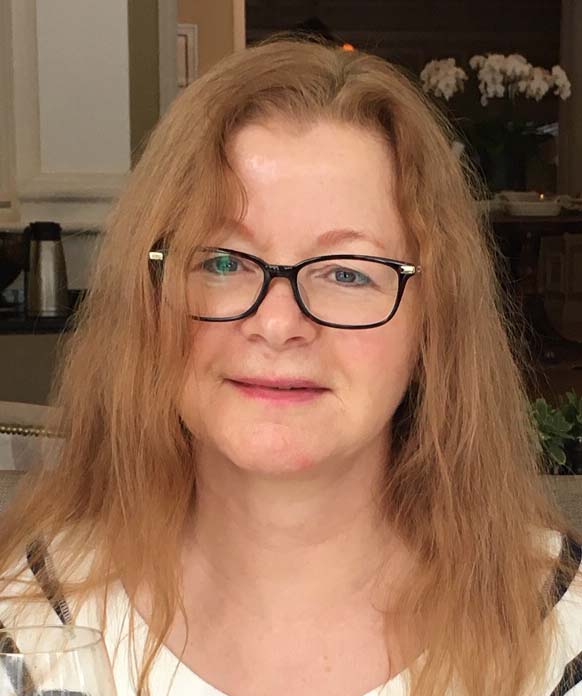
Image of her
I have this fleeting memory of her sitting on her bed, still and silent, as dawn’s soft sun fingered its way through the sheers. She was unaware that I stood in the doorway, for she was far away, staring out of the window and—what?—remembering him? planning an escape? asking herself why?
This image of her is all I have left of my mother: her straight back, the shiny brown bob cut to the nape of her neck, straps of an olive satin nightdress hanging from her bony shoulders.
Continue Reading
Mansour Noorbakhsh

Transplanted
Agitated, my wife came to the bedroom and called me behind the curtain. “She came again”, my wife said. “She said it makes more gardening work for her. What gardening work might it cause for her?”
My wife was talking about a Persian Walnut tree that a friend brought us from Niagara Falls some years ago. Four or five years ago on a spring afternoon, a wet and rainy day, he came to our backyard, laughing happily. He was coming back from Niagara Falls with two tiny branches in his car.
Continue Reading
Sylvia Petter
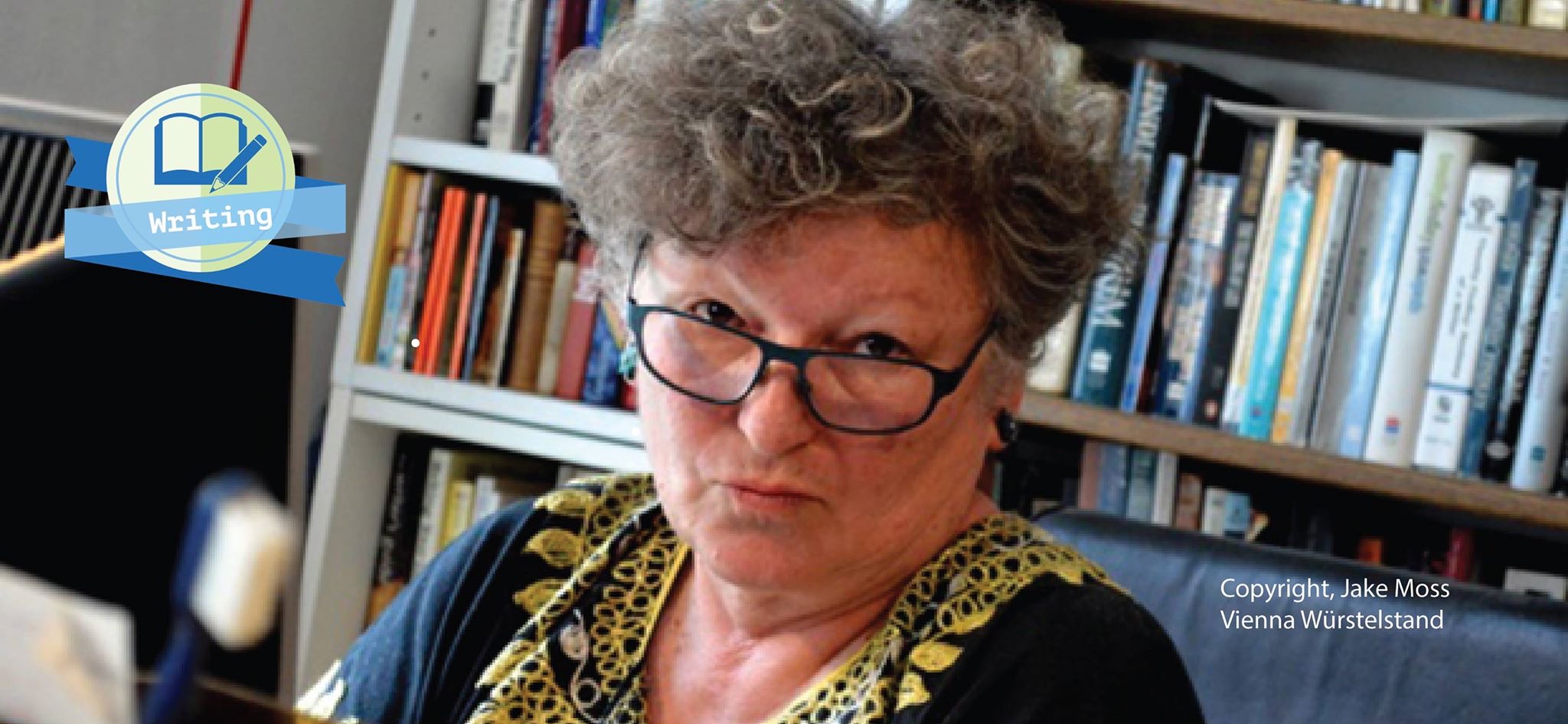
Matthew
I didn’t know my son was born until the day after. I didn’t know if I’d even wake up. It was three days before I dared go up to his room. From the first day, Jack had gone to the room our baby shared with ten others like him in the intensive care section of the maternity ward, but I couldn’t do it straight away
‘It’s over 30 degrees,’ the nurse said. ‘We can take them out for a bit. It’s warmer in here than in the incubators.’
It was clammy in the August heat as I watched through the paned door. I didn’t know which baby was mine. I couldn’t hear any of them crying. But the one closest to where I was standing scrunched its closed eyes, stretched out its froglike legs and opened its tiny mouth in a soundless wail. My breasts wept.
Continue Reading
Non-Fiction. Edited by Olga Stein
Heidi Grogan

Where is the M in (M)other?
My children’s birth mothers inform my “othering” every day. As an adoptive mother, I am always and all the time looking for the (M) … under beds where mismatched socks wait to be found, in wet laundry gone stank because I forgot, in report cards needing to be signed. In kisses at night when they are asleep.
I find the (M) in pictures my husband takes of us, in their smiles when they shine, and I connect the smiles to a signing up for football or riding lessons. I find the (M) in choices, in what has been given / up. In their shining, I understand the significance of holding and offering choices, and I step into the (M)….
Continue Reading
Heather Birrell

Fairy Tale
The light was harsh and clear, and the sea was near, but desert plants
grew outside my window. At night, I played Scrabble with the other
residents, then copied the words we had placed on the board into
my notebook. Crowing roosters and circling, stray dogs woke me
every morning. For breakfast, I ate fresh, fatty yogurt from the milk
of the goats that lived on a nearby patch of scrubby land, sweetened
with honey from a local hive. It was like nothing I had ever tasted
before or have ever tasted since. Why am I telling you all this? Because
last night, and most nights when I wake to my own heart’s desolate
cries, I make myself a snack of plain yogurt with honey, swirling
the spoon fervently around the inner circumference of the bowl
while I worry for my children’s present and future.
Continue Reading
Nina Kossman

DOLL
“Mama,” said Jemina. “Look, Mama.”
“What is it, Baby?”
“The doll, Mama.”
“The doll? What happened to the doll? Ah, its head. You’ve broken off the doll’s head.”
“Mama, I didn’t. It fell off by itself. I picked it up and it was like this already.”
“It’s okay, Baby. I’m not blaming you.”
“But you said that I…”
“That was just a way of speaking, Baby. When I saw that the doll’s head was broken, I commented on it to myself. It doesn’t matter who broke it, or whether it just happened by itself.”
“But Mama—”
“What we have to think about, Baby, is how to fix it. Do you think we can fix it?”
Continue Reading Doll and Mother’s Love
Marion Collin

A WEDDING AND A FUNERAL, TRUTH FOR CAM CANADA
That day, October 7, 2018, was warm and sunny. It was Thanksgiving: turkey cooked, guests arriving, and we were dining a day early, on Sunday, instead of Monday. This made it easier for travel. Our adult daughter and family called to say they would arrive late. Little did we know that the reason for the delay would change our lives.
We served up the meal, gave thanks, and enjoyed the turkey, mashed potatoes, and stuffing with our neighbours. Gary, our youngest son, joined us. Our oldest, Cameron, wasn’t at our dinner because he had flown on October 4 to attend the wedding of a friend with whom he had roomed at Montana Tech. We were about to eat the strawberry rhubarb pie with ice cream when daughter Julia arrived with her family.
“Cameron is missing in Montana!”
Julia received the distressing phone call just as she was about to head out. She wanted to tell us in person. Cameron had been missing since October 4.
The nightmare had begun.
Continue Reading
Teresa Callihoo

How to Mother a Woman
My daughter became a woman on a Thursday. I was just finishing my first semester teaching at a local college, busy giving last lectures and frantically marking student papers. Many of my students, overly vocal about their marks, were emailing me several times a day before their grades were finalized. Everything felt urgent.
For several years I had imagined this day. I thought that somehow, from my own inner resources, I would spearhead this transition. I envisioned an eclectic mix of red tent and tradition. I imagined friends and family offering their wisdom and perspective. I imagined women gathering. But when my daughter let me know it was time, my first thoughts were how inconvenient. I knew we were supposed to pause for ceremony for four days, and frankly, I didn’t have the time or inclination to do so.
Did I mention she became a woman during a pandemic?
Continue Reading
Olga Stein

Shtisel’s Heart
Shtisel is primarily about a quirky Orthodox family that resides in Geula, a Hasidic neighbourhood in Jerusalem. The series’ main focus, therefore, are familial relations—at times stressed and strained—between wives and husbands, parents and grown children. These may sound like conventional storylines, and some are. Still, the fine writing that made Season 3 possible must be given a great deal of credit for its brilliant treatment of love: here love is rendered as an objet d’art that is turned and turned until made visible from every angle. This is literally the case with the bereaved Akiva Shtisel. A brilliant painter who is devastated after the loss of his beloved wife, Akiva obsessively paints portraits of Libbi in various guises (as a bride, wife, mother to a newborn—always the beguiling subject of his enamoured eye). When an art dealer stages an exhibition for these portraits in his gallery we see all the portraits displayed—each a unique and stunning testament to Libbi’s multifaceted beauty and Akiva’s abiding love.
Numerous variations are spun on the central and animating theme of love’s figurative and literal connections to the heart. Some depict the effects of love’s absence. An anxious Shulem, the widowed patriarch of the Shtisel family, makes an emergency appointment for himself with a cardiologist, who tells him that he should have a girlfriend or a close companion at the very least because loneliness “is the number one cause of heart attacks.”
Read full essay
Misty Hawes

Women Circle
I sit in the viewing area, not really paying attention. I fidget on the uncomfortable benches. They are hard and backless, and I have other things to do. But my daughter, out on the floor, likes to see me when she glances over. So here I sit. As I watch her practice a tumbling pass, I overhear a conversation in the row in front of me. I try to tune it out. Try not to comprehend. “…tried to help…little girl…” It’s enough to turn my skin clammy and force my fingers to clamp around the edge of the bench — my knuckles white.
I want to get up and walk away. Shout or sing to drown out the words. I can’t. I’m rooted. I cling to the bench, the only solid thing I can reach, desperately willing myself not to slide away on the wave of horror that rolls over me.
Continue Reading
Sandy Bezanson

(M)othering on an empty stomach
I have recently become a supporter of Fake News.
Fake news, fake facts, fake time, days, seasons—I am now an ardent supporter of all of these and more. As I walk with my dear mother down the final path of her life, I will support anything that makes her travelling lighter and more meaningful.
Certain common realities no longer hold sway. What does it matter that it is “Tuesday” not Sunday; that she ate the last piece of carrot cake not I; or that she talked to Uncle Jack “only yesterday”—which would make him 129 years old? What does matter is that the 96-year-old skeletal frailty who is my mother can be comfortable, nourished, and know that she is well loved.
Continue Reading
Sally Krusing

Let’s Pretend it never Happened
I know that I got pregnant in February, 1965. I recall the Knight of Nights dance—our high school prom. I wore a long home-made dress made of burgundy velvet, in the empire style. A pink ribbon encircled my body below the bodice, and a wrist corsage of red and pink carnations completed the ensemble. David wore a rented tuxedo.
We attended Robinson High School in Tampa, Florida, and our mascot was The Knights of the Realm. Before the dance ended we snuck out to David’s car, a Nash Rambler with front seats that folded down flat. We had started dating at the beginning of our senior year, and had sex several times to satisfy our raging hormones. David always insisted on not wearing a condom; he called it a prophylactic and said it didn’t feel good. He promised to withdraw so there wouldn’t be a problem. I trusted him. Today I can’t believe we never discussed the risks of pregnancy or its consequences.
Continue Reading
Literary Spotlight with Sue Burge

KEEPING TRADITION ALIVE
This month I’m delighted to catch up with a fellow writer with Hedgehog Poetry Press, Raine Geoghan. Raine is a fascinating writer from a rich tradition of storytellers and makars. She is very conscious of her Romani heritage and in the current climate it feels more important than ever to keep all the roots which nourish us alive and voiced.
Raine, I notice that poems from both your collections, Apple Water: Povel Panni and They Lit Fires: Lenti Hatch O Yog, are going to be featured in an exhibition at the Gressenhall Farm and Workhouse Museum in rural Norfolk (UK). I always think of you as a poet who is very concerned with tradition and the countryside. Could you tell us a little about the background of your collections and how your Romani background informs your work?
Thank you Sue, for inviting me to talk about my work. I am thrilled that three of my poems will be hung in an exhibition at the Gressenhall Farm and Workhouse Museum. It really is satisfying to know that people will see and read them, that the poems will reach a wider audience. Let’s go back to 2017, after I finished the MA in Creative Writing at the University of Chichester. It was then that I began working with a mentor, the poet and tutor James Simpson. I mentioned one day that I was of Romany heritage and he asked me why I wasn’t writing about it. I told him that I had written a radio play many years ago but pushed it aside with the intention of returning to it one day. Well that didn’t happen, but I suddenly found that the time was right to set to work on writing about my Romany family.
I was born in South Wales, in the valleys, but my father died when I was nineteen months old and my mother, who was pregnant at the time, moved back to Hanworth in Middlesex. We lived with my Romany Grandparents in their council house. I remember it vividly, the colour, the music, the stories, the Romani jib (language), the wildness, all of it. The poems, prose and songs in my first pamphlet ‘Apple Water: Povel Panni’ are all based on my family who among other things picked fruit, vegetables and hops in both Herefordshire and Kent.
Continue Reading
Writing Advice with Sue Burge
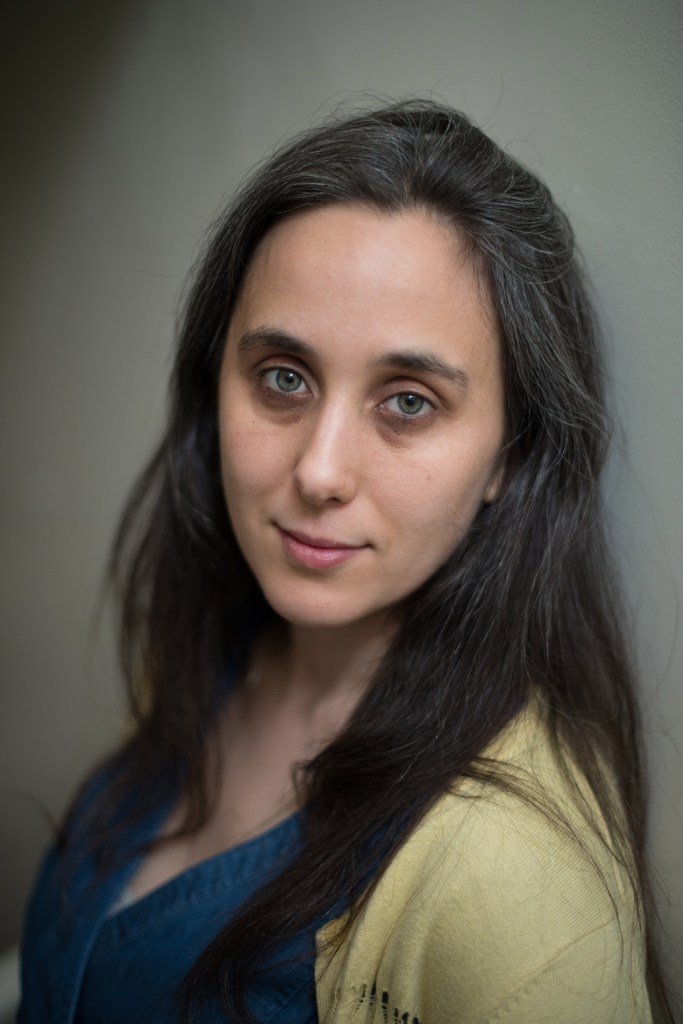
This month I invited poet Jenny Pagdin to give advice to writers on how to protect their wellbeing when writing about trauma. I was bowled over by Jenny’s words in this sensitive, generous and searingly honest article.
In the snow globe of trauma
When my son was newborn, I was hit between the eyes by a serious mental illness, postpartum psychosis, which broke my ties with reality just at the time of adjusting to new motherhood. This was eight years ago, and I have gone on to write both a pamphlet (Caldbeck), and the manuscript for a full collection (In the Snow Globe), about my experiences then and since.
While not a teacher or psychologist, I can share a few tips about writing trauma from my own experiences.
- Self-care
My first advice would be to practice general self-care: watch that your internal monologue is gentle and compassionate, and meditate/run/nap/phone friends/do whatever you normally do to take care of yourself, and do it even more than usual. Especially if you have no time. Especially if you have small dependents.
Continue Reading
Book Reviews. Edited by Geraldine Sinyuy
Daughters of Smoke and Fire. Review by Patrick Woodcock

- The rage I’d kept bottled up inside of me boiled over, made me brave. I screamed at the guard who told me to fuck off. “International interventions will soon put a stop to your brutality!”
We can trace this rage to Leila’s relationship with her mother. It is the most complex relationship in the novel. Her “Mama” is an extremely complex woman trying to navigate an imploding marriage where her husband sleeps alone in the attic and drinks too much while working and caring for the children he is no longer capable of supporting. Given the unstable and repressive familial and cultural climate she is wading within, it is no surprise when she tells Leila: Sometimes I feel like I’m drowning, pulled down by weights, (p.36)
Read full review
Prayers for Aisha Lulu. by Darcie Friesen Hossack
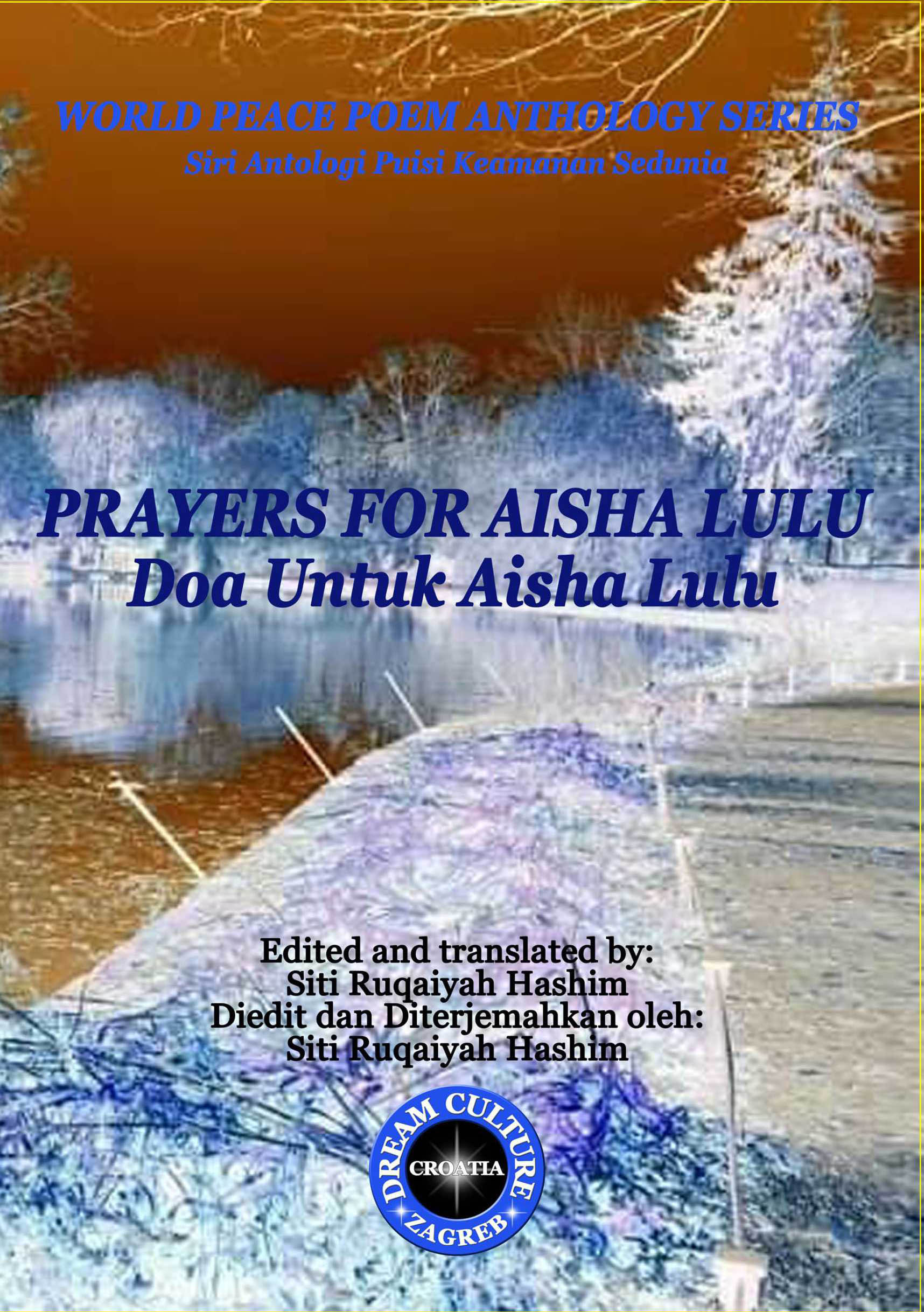
Prayers for Aisha Lulu
As I write, tensions and violence are once again escalating between Israel and Gaza. People are dying. Hatred is rising. And caught in the middle are the children.
This conflict, for all the years and decades of its existence, is the reason for Prayers for Aisha Lulu, an anthology of peace poems, dedicated to one young girl, and by extension, all of the children lost to mistrust of others, to hatred, to war.
And yet, in the words of Carin Makuz, one of my favourite bloggers, “This Is Not a Review.” Not exactly. It is also not a political essay or opinion piece.
Continue Reading
Visual Art. Selected by Anne Sorbie, Heidi Grogan
Shannon Mackinnon
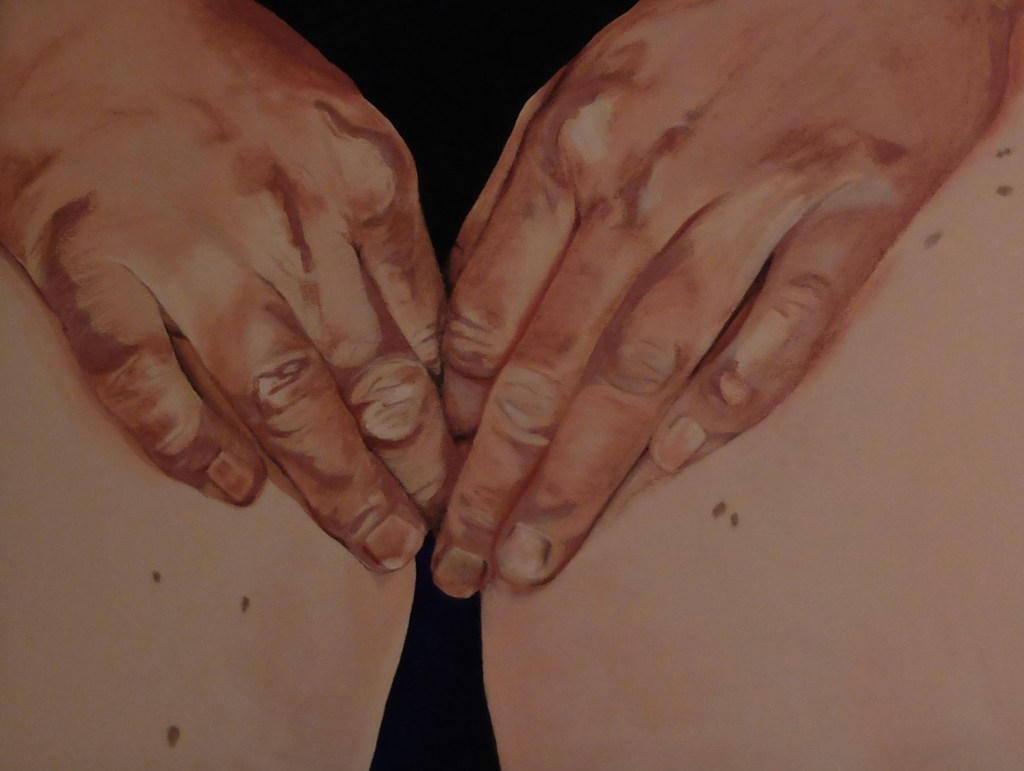
Continue to more art and information
Shahid Mirza

Continue to more art and information
Poetry. Edited by Clara Burghelea and Nancy Ndeke
Anne Sorbie

The Day After the Day of Mother Love Your knife digs in to the bleat of cheese I add to the morning bread Soft as a prayer revering love the day after the day of mother love The ceramic jug you filled with milk I use for water and your name sings on my daughter’s lips when she sees it
Continue Reading
Sage Tyrtle

Swimming for Safety pregnant, I watched this tv show on Wednesdays in the opening credits this crying toddler would run into his mother's arms like people swim for lifeboats and I knew that would be us but I am the crying toddler chasing after the cat the cat who is you, who loathes hugs who yowls when I hold you like a baby sometimes when you are asleep I perch gingerly petting your back, smelling your hair reminding myself you like me, just not hugs
Continue Reading
Ileana Gherghina

Children know Children know everything They have eyes everywhere On Jupiter, On Mars, On the Milky Way, Back Home, In the top of the tree, In the back of my life, In the hen house, In the cell, In my heart, In my memories, In the plum stone, In your flesh, In my smile, In my hand, In your sight. But the language We adults teach them Can’t express The vastness they know. And we adults Remain Unlearned.
Continue to 2 more poems
Kate Rogers

Baba Yaga's Child I Baba Yaga gathers tiny corpses of broken birds beneath her windows. She hangs eaves and pine limbs with home-made bone wind chimes, strings bush lout bone-anchors, threads the basket rib cage of a pied biter, weaves in cuckoo wings for lift. At the top of the strand, hummingbird beaks, needles to stitch the breeze with nectar. Outside, sweet mist meets my cheeks. On quiet days tiny clavicles, mandibles, femurs clatter. My cup is a crow skull. Baba Yaga’s potion leaks from eye sockets when I tip it to my lips. I run, caw, trill, warble, wail looney. Northern diver throws his voice across the lake, like a ventriloquist. Loon teases, echoes till the wolf and I reply.
Continue Reading
Monica Manolachi

Bitter Cherries It took her a month to buy a salt shaker. One day she had a last eclair with her daughters in town. She left her soul at home on the hallstand and slowly climbed the airstairs to the country of sighing where immigrants go. A walking dead as she was, she had no tears. Her life had stopped. Lunches every other day. She remained a mother on the phone only. When cooking for others, she thought of her family.
Continue Reading
Narayan Bhattarai

My Mom’s Secret My mom bears the chronicle of Nepali women in her rough hands hardened by time and in the wrinkles of her jittery countenance She is a history never to be written because nothing big happened in her life When she had to get a toy to play with she got a bridal veil and the in-law’s house where rules were made only for her. There, she learned to listen and endure: Commands, slaps, humiliation, torture A good woman was a silent woman A good woman begets lots of kids My mom was successful My mom always nods her head in agreement because she has never disagreed in her life She agreed to be bride when she was seven
Continue Reading
Dolly Dennis
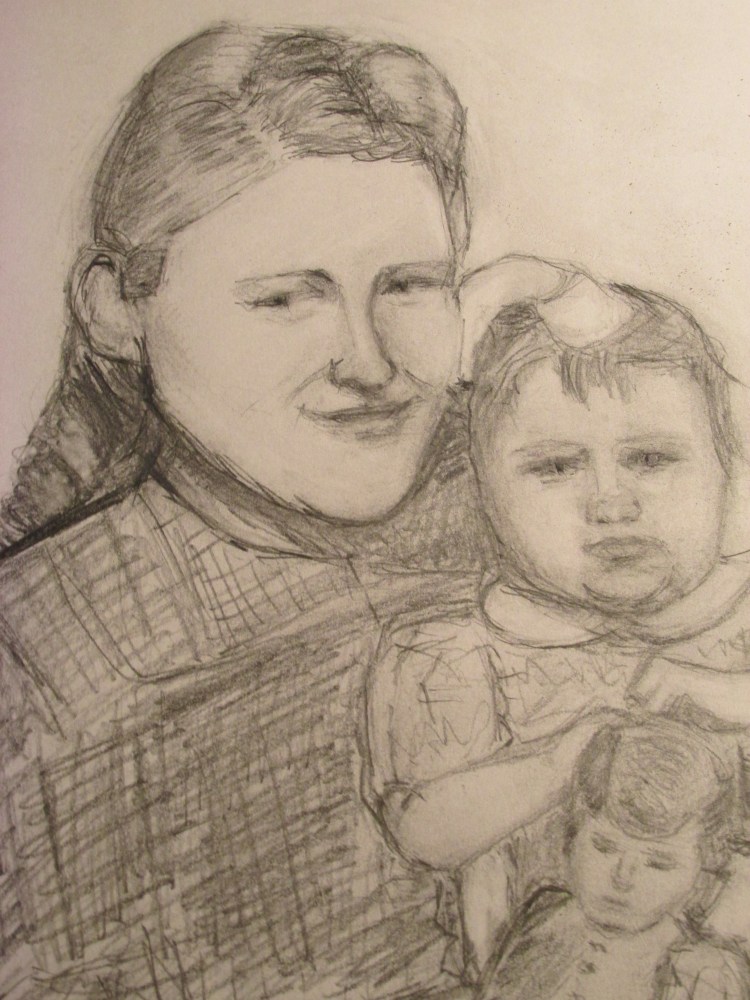
BALTIC BREAD – (for my mama) autumn. unraked lawns, yarns of lilac twigs garnish gardens, now ignored. a new school year. i comb neglected leaves, meditate, salivate, remember black bread and sour cream— after class, a run to the bakery. such a hunger for a six year old. i start to nibble, nosh like Alice down the rabbit hole, reach home, the heel of the bread gone. a scolding. no super supper tonight, no sauerkraut, no Baltic bread. just sour cream on nothing. ∞ your last words to me from your hospital bed, i love you, love you, love you. a profusion, a confusion of phone dates followed—
Continue Reading
Rachel J. Fenton

Miscarriage A German Shepherd has his head and front paws in your hutch, lifted off the lid to climb in and almost had you. I had woken from a dream; thought I’d heard someone knocking the fence in. Outside the bedroom window, the dog stares when I scream ‘Oh,’ as if I’ve discovered my baby dead in my uterus. Gormless, until I add, ‘Out, out, out,’
Continue Reading and to 2 more poems
Nancy Ndeke

WHEN OTHER ORDERS A MOTHER’S HEART The soil,dirty,darkly brown, often damp, The liquid gold of wombic nurture and stature, The goddess with nimble fingers and tender breasts, Teaching lullabies in a preachers trembling tunes upon a fevered wake, A father’s gift for a name after his father’s and further down the lineage, The place of worship in needs met and wants explained, What’s motherhood but divine soft shine of pain in beautiful gain,
Continue Reading and to another poem
Mbizo Chirasha

A Dedication To My (M)other As I dangled on your struggle - hardened back I carved poetry from your sweet lullabies and grieving hymns became a griot before teething … You remain my Goddess of all time On the day of my birthing the moon was torn into two halves wind raged a storm ensued thunder clapped the red earth lightning bolts cracked in synchrony with gunshots The rat-a-tat of pelting raindrops witnessed your labour
Continue Reading
Lynn Tait

A Life of Envy in memory of Stephen 1983-2012 I would rather someone to call sister, brother, father rather than my family tree rootless, without leaves; a life-path with fewer side streets, instead of twists and turns— crossroads leading to dead ends. I would rather hear the hum and drawl—calling for Mom again,
Continue Reading
Josephine LoRe

in.ception
Scientists have captured the flash of light
that sparks when a sperm meets an egg
I knew
I walked from the bed to the bathroom and knew
a life inside my life a spark
within my spark a flash
infinitesimal then the size of flaxseed
waving blue in summer breeze hazelnut
in shatterproof shell apricot
fuzz-covered flesh yielding to touch grapefruit
sunshine bursting into scent
Continue Reading
Mary Pecaut
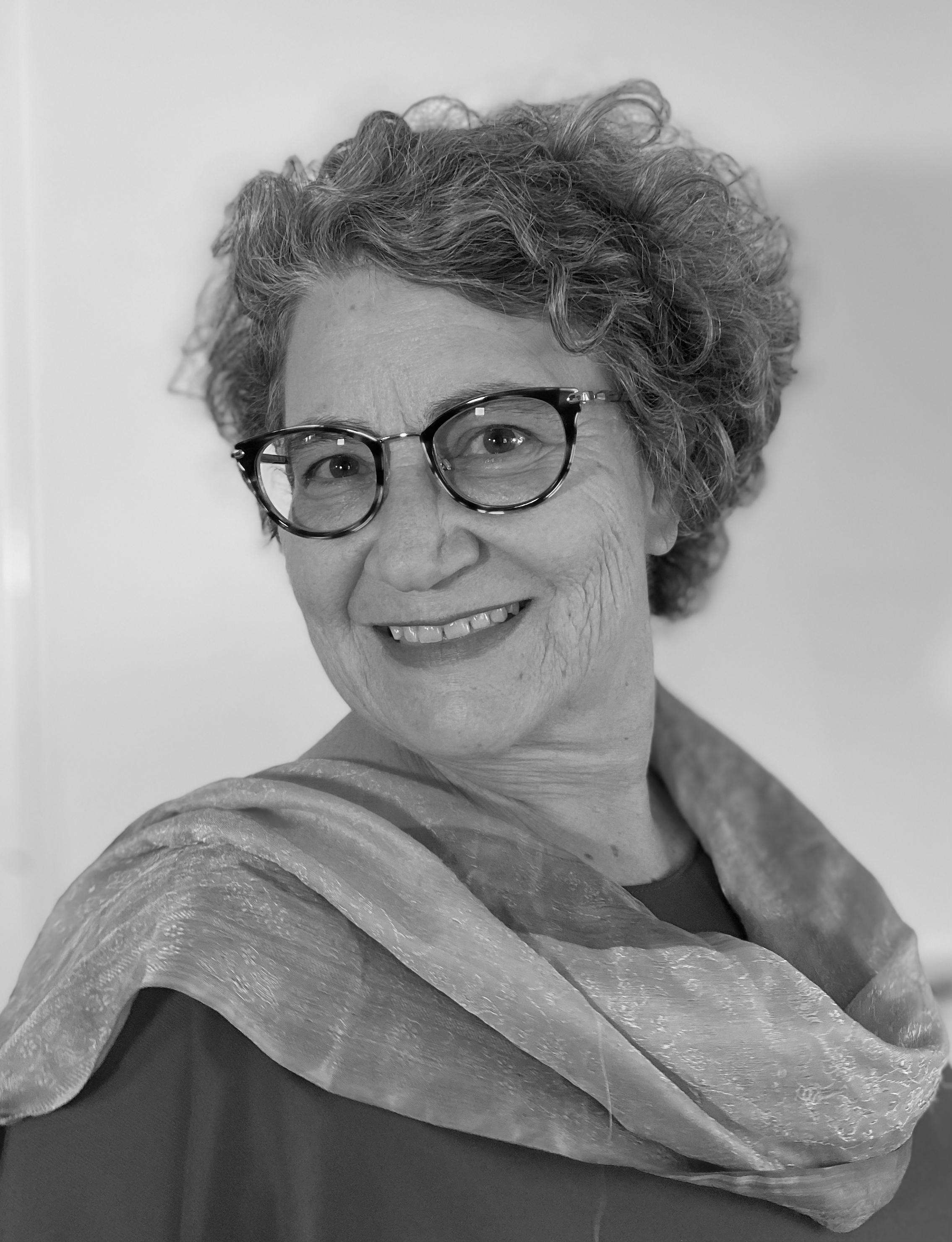
Invitation to Mom (After Mirna Stone) If I can bring you back again it would be on a day like this when the sky opens wide to the water pelicans perch on fishing boats and lego-like container ships navigate the Panama Canal And I would bring you to my rooftop and tell you THIS is what I love, this view, this horizon you've never seen this papaye sunrise this breeze that nudges me corrals the clouds
Continue Reading
Angela Costi (Aggeliki Kosti)

Mothers A. I can lose myself between bed and mirror cot and door lamp and window I can merge with the suckling at my chest the train snoring at my side the call of the lonely magpie, still I drain into the miracle. The dark, the shadows, the moon my mind his growing mind evoke koonia bella, swing my baby hither, koonia bella my voice quivers in rhythm with the window panes while they recall it’s raining, it’s snowing, God waters the statues other nursery rhymes fight for the match, one lights the wick to melt the candle that fills the room with the smell of my one dolly I thought I had lost. We used to play balamakia, let’s clap our hands, clap, clap, clap daddy will come and bring us sweets, kooloorakia for our biscuit tin
Continue Reading
Andrea Holland
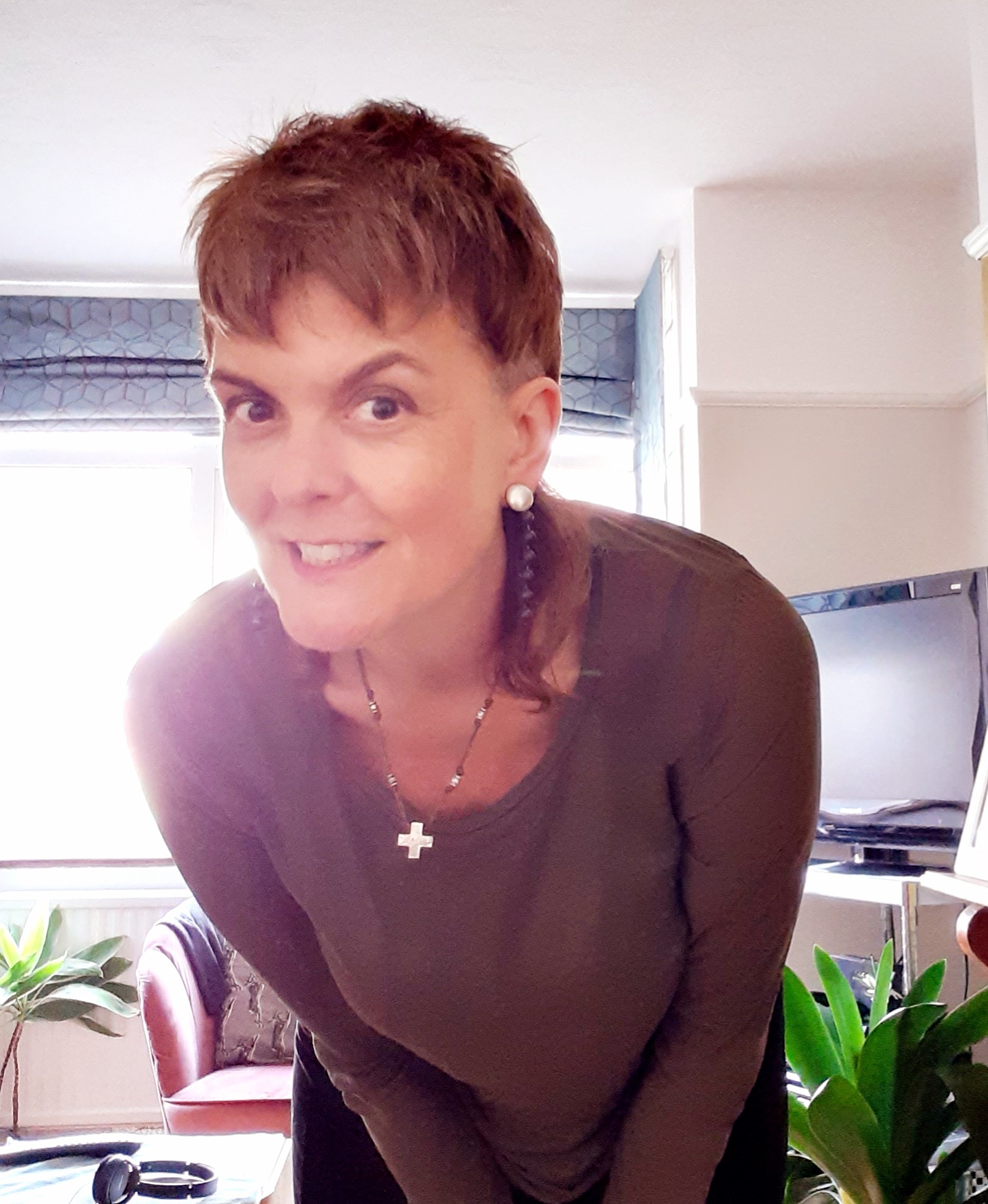
Mine
- For C.
There were times I left my tools at the top.
There were times I pitched against the rock
against my will against you sedimentary, fixed
to everything around me. Therein a song
of the dark lit a little by shine off the walls.
I thought I made you but you were there
all along; the body’s way of working itself
into the future. I thought tools were
enough to bring you out they were not.
Continue Reading and to another poem
© This journal and its contents are subject to copyright
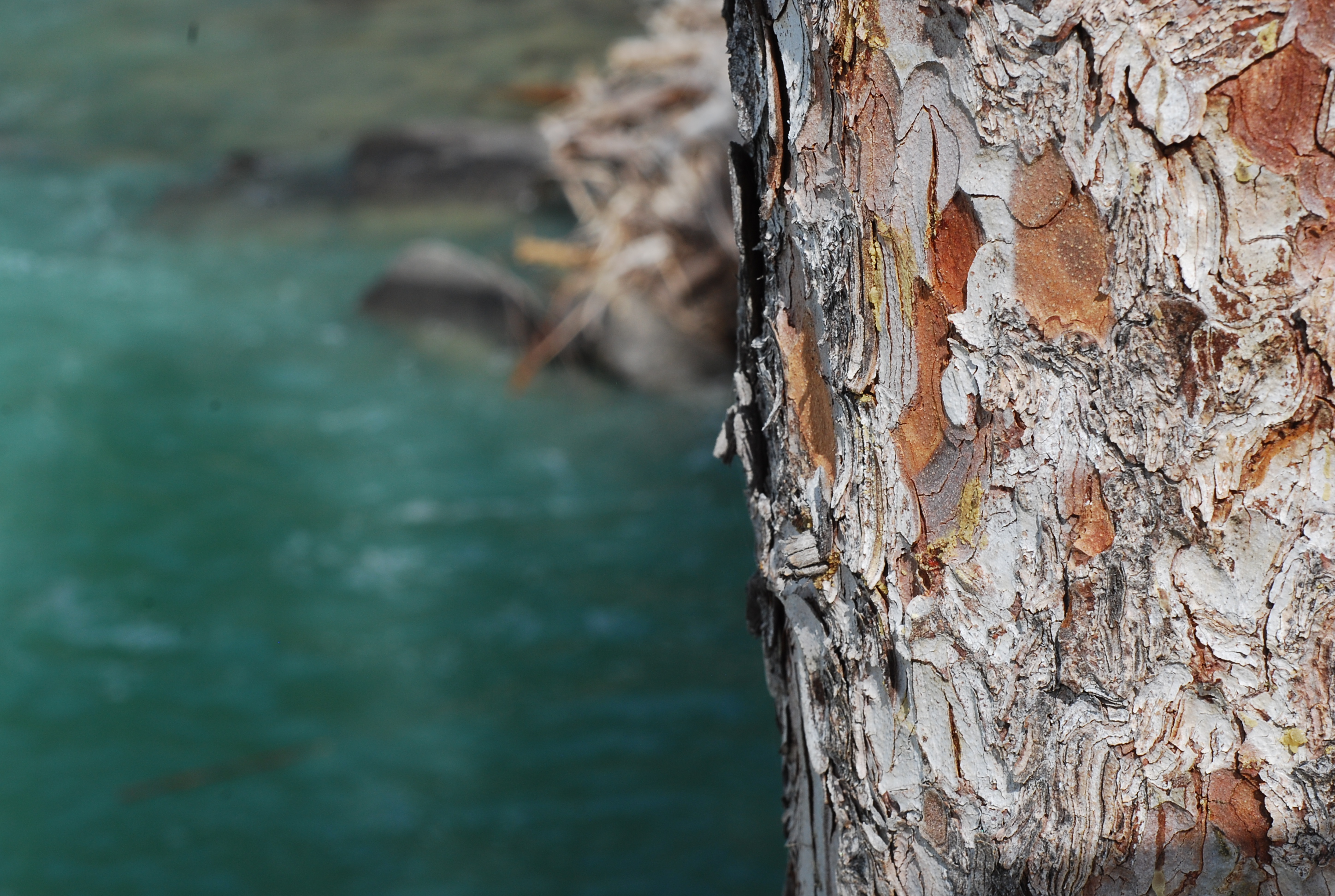
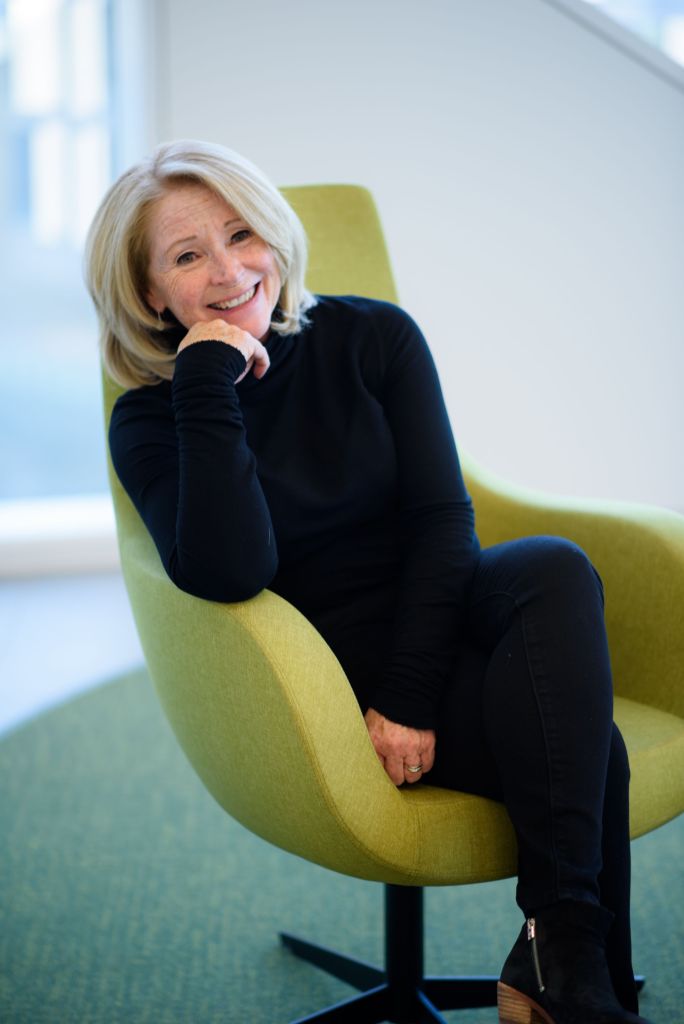
An exquisite collection… Such strong voices from around the globe and from distinct perspectives. Thank you so much for putting all of this together!
LikeLike
classic collection brilliant work
LikeLike